- July 15, 2025
-
-
Loading

Loading
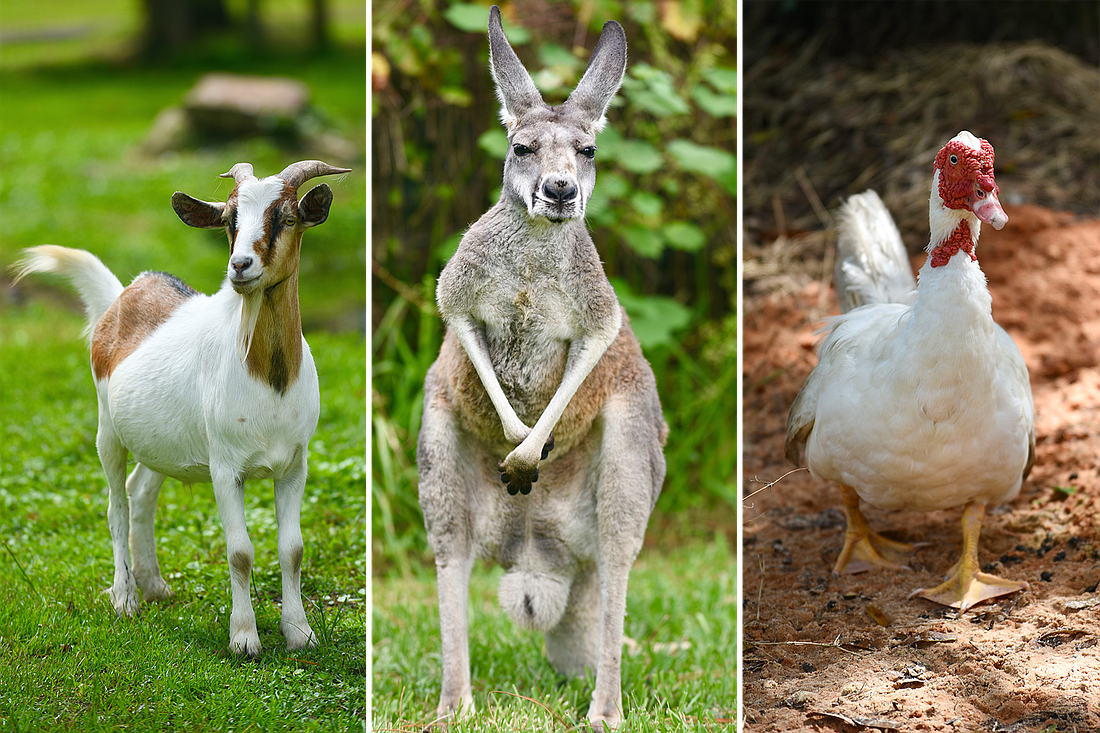 Photos by Heidi Kurpiela
Photos by Heidi Kurpiela
Taylor, an enormous potbelly pig, is the property’s unofficial greeter, waddling out to meet visitors with friendly snorts. Blair, a 2-foot-long bearded dragon lizard, likes to wrap around peoples’ necks for extra warmth when she’s not watching TV. Luna, a prairie dog, works the X’s and O’s on a Toss Across Tic-Tac-Toe game. Emily, a kangaroo, loves to be petted on the bottom of her neck.
These are just a few of the 130 animals that reside at the 6-acre Farmhouse Animal & Nature Sanctuary in Myakka City. The nonprofit facility is owned and run by Lisa and Dave Burns, who’ve been married since 1986. They live in a house on the property.
This is their life. Feeding animals, watering animals, cleaning animal habitats, calling the vet to treat animals, watching over animals, playing with animals. Loving animals. The menagerie includes horses, goats, tortoises, all sorts of birds, lots of rabbits, koi fish, a hedgehog and tiny marsupials called sugar gliders, which are native to southeastern Australia.
The Burns haven’t taken a vacation since establishing the animal sanctuary in 2017.
“I never thought I would be doing this,” Lisa says of her more than full-time job. “I still can’t believe it. I never liked to get dirty when I was a kid. I never thought I’d have a rooster that wants me to carry him around. You don’t realize what you like until you actually try it. I got out of my comfort zone and fell in love. When you really love what you do, you can live without vacations.”
Farmhouse Animal & Nature Sanctuary is a rambling assemblage of fields, fences, barns, coops, an aviary, and elaborate dwellings designed to meet the needs of particular creatures, some of which are not native to Florida. Luna the prairie dog’s home has decorative tile on one wall so she can’t climb out.
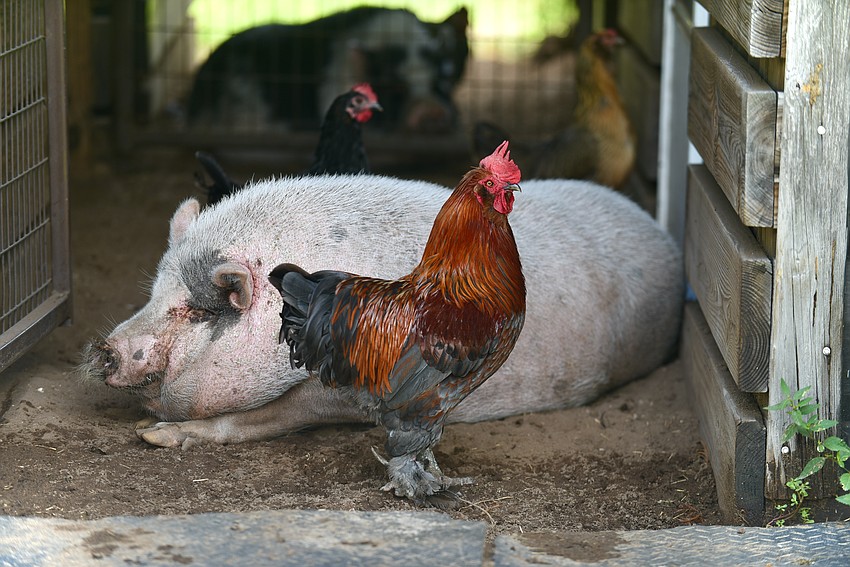
Dave, 58, does the building, repairs, digs trenches to drain off water and whatever else needs doing on the grounds. Lisa, 57, handles the business end, writing grant applications, keeping track of finances, covering the paperwork that goes into running a nonprofit, plus a whole lot more. They rise at 5 a.m. and begin the feeding and cleaning. The process takes four to five hours, plus another 90 minutes in the evening. Sometimes a volunteer helps, but Lisa reckons that she and Dave do it on their own three to four days a week. “Our volunteers are wonderful,” Lisa says, “but volunteers can cancel. They have lives, too. Things come up.”
Farmhouse has a core group of 11 volunteers, who, Lisa estimates, log 76 hours a month. They’re augmented mostly by groups of high school kids putting in service hours. “We could use another 30 volunteers,” Lisa says, adding that she has two women who help write grants and blogs and do other office work. In 2021, Lisa says, the nonprofit amassed $73,000 in donations and grants. “We spent all of it running this place,” she says. That sum enabled Farmhouse Sanctuary to effectively break even — if you don’t count the time put in by its owners. To help make ends meet, the couple owns Backyard Getaway, a part-time landscaping business that specializes in water features. Dave also does drywall work on the side.
Lisa’s goal — her dream, if you will — is to boost the yearly budget by about $50,000 to hire a full-time employee. “That person could do the feeding and cleaning and other stuff,” she says. “I could get those hours back to go after more donations and work on grants. And spend quality time with the animals.”
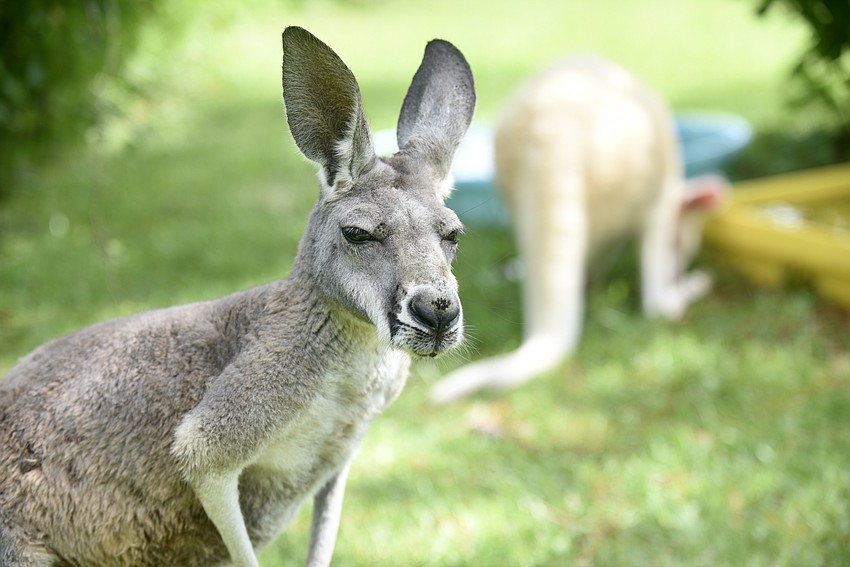
Touring Farmhouse Sanctuary is simply a wonder. On a sunny, humid Saturday morning in mid-September, we drive through a metal gate, just off Bradenton-Arcadia Road. It’s a bucolic setting, a good 10 miles east of developed areas. A symphony of animal noises rises and falls.
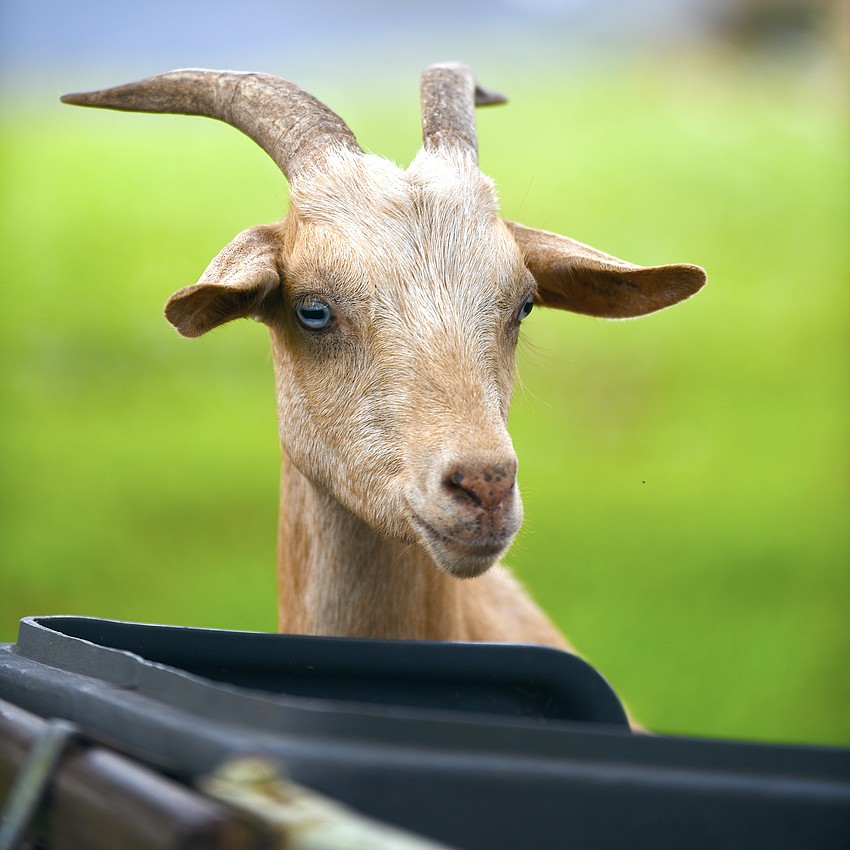
The Burns are there to greet us. As we make small talk before beginning the tour, Dave, clad in a white T-shirt tucked into dark jeans, quietly says to his wife, who’s wearing a black tank top, “You’re covered in goat hair.” She shrugs. There’s no photo shoot today.
Dave gives us a handful of animal crackers to dole out as treats. Somehow it doesn’t seem ironic. Our tour is limited because frequent downpours have rendered much of the grounds squishy, muddy and filled with puddles. Dave points out a huge “poop pile” in the distance. “We really need a backhoe to handle it,” he says. “But some of it has turned into good soil.”
As we walk through a barn, Kerstin Wiles takes a break from her toils to chat. She comes over from Lakewood Ranch to help twice a week. Wiles signed on when she saw kids from Lakewood Ranch High School doing volunteer work here. “I scoop a lot of poop,” she says offhandedly.
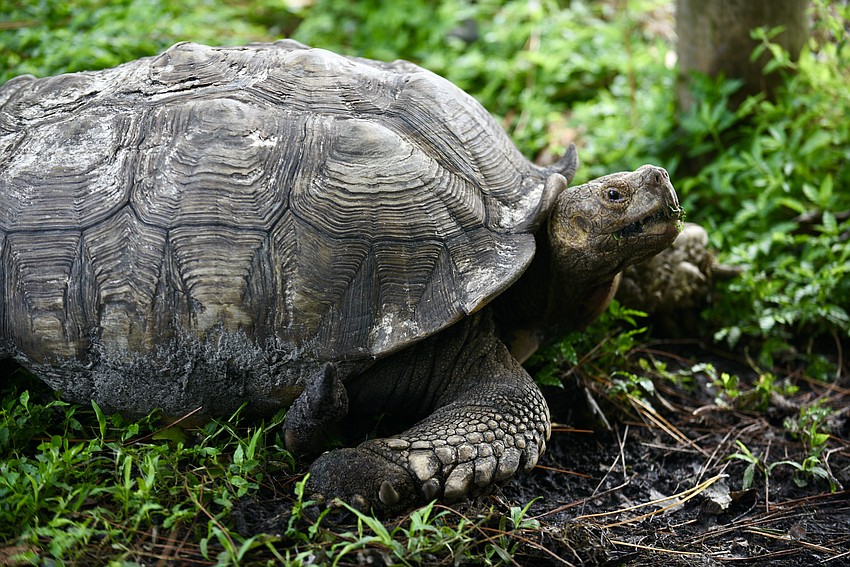
In all, our tour is a fun, fascinating two hours. When do you ever get the chance to pet a kangaroo? When have you ever had a ferret lick the sweat off your arms for the salt?
Farmhouse Sanctuary does not offer tours to the public — yet. After some back and forth between Dave, Lisa and the board members, the nonprofit applied with the USDA to run tours as well as hold classes for youngsters in a small building on the property. Lisa was the last holdout. She worried that the initiative would add another burden to an operation that’s already stretched to the limit.
Lisa did some research and found that the most they can charge for a tour is $20 to $25, so the initiative won’t add substantially to the coffers. “But it’ll be good for raising awareness,” she says. “It’ll show educationally what goes into taking care of these animals. It should help in fundraising, too. And maybe some of the people who visit will become volunteers.”
Lisa says she expects the tours and classes to begin in the spring.
Most of the animals arrive at Farmhouse Sanctuary through Manatee County Animal Control, the Sarasota Sheriff's Animal Services, and the Exotic Pet Amnesty Program of the Florida Fish and Wildlife Commission. Many of the creatures were given up by their owners. The baby potbelly pig that seemed like an adorable pet is now 3 feet long and north of 100 pounds. That tortoise that once fit in the palm of your hand is now bigger than a garbage can lid. And kangaroos? Yes, there are people who think they’d make cool pets. They don’t. But in Florida you can own one without a permit.
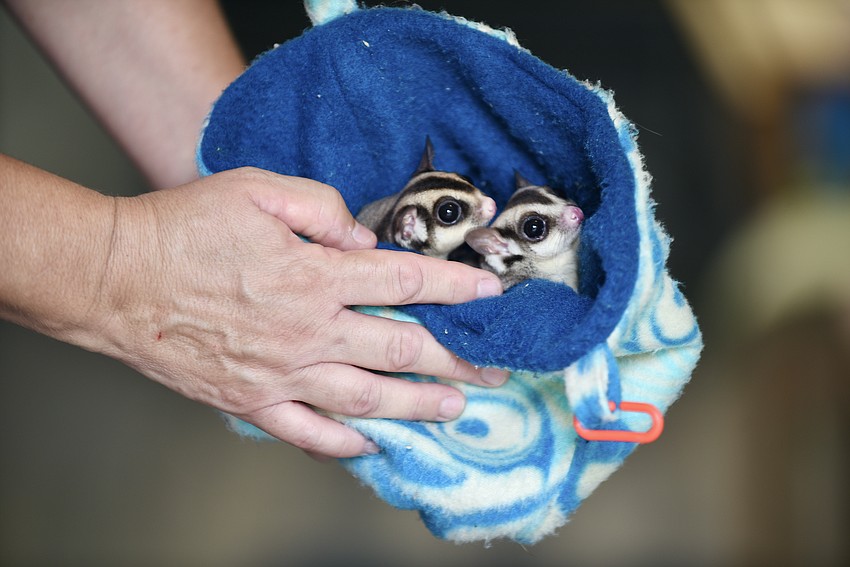
Other Farmhouse Sanctuary animals, however, were abandoned and, unsurprisingly, some have been through hell. Emi, a Muscovy duck, had been wandering around Tampa for five months with an arrow through her neck. A rescuer found her and dropped her at a rehab center, where a vet removed the arrow. After rehabbing for a month, she was moved to Farmhouse Sanctuary, where she’s doing fine.
Colt the Wonder Goat was found limping around Punta Gorda by someone who then went door to door trying to find the owner. When that failed, the person reached out to animal services, who contacted Farmhouse Sanctuary. Colt had a badly broken shoulder and at first a vet wanted to amputate her entire leg. Lisa and Dave raised $4,000 to pay for a complicated operation that required the insertion of a plate and four pins into Colt’s shoulder. The Wonder Goat has made a wonderful recovery.
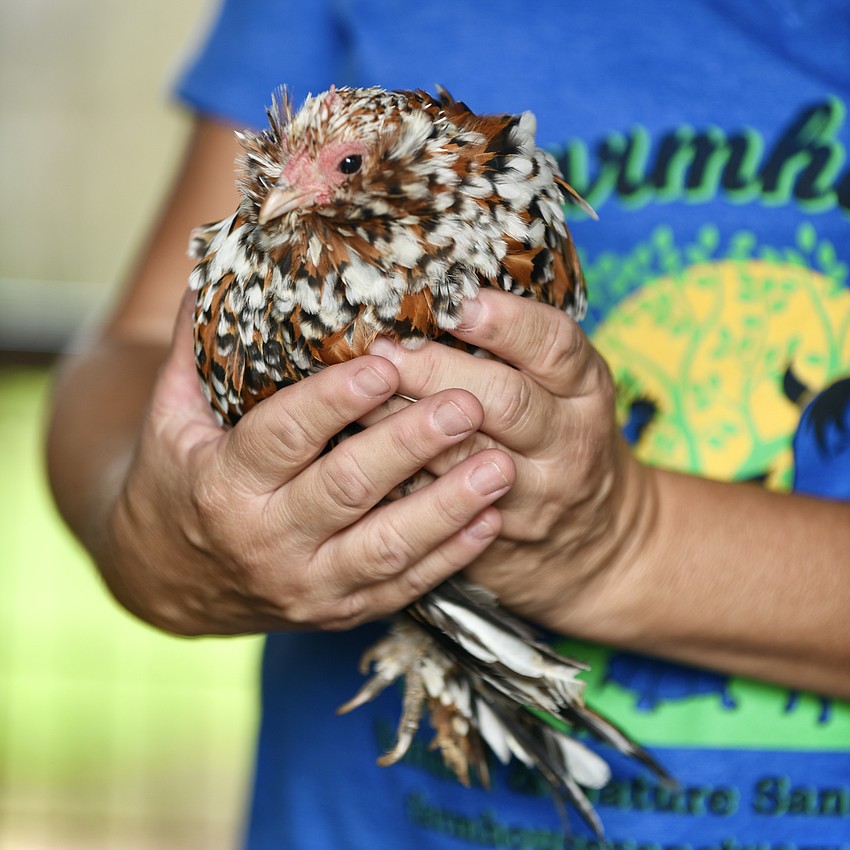
Yeesaw, a donkey, lived with a loving family, but when the couple divorced, they reached out to a neighbor who promised to take care of him. Sometime later, a visitor found Yeesaw by himself in a field, with no food, his hooves in such bad shape he was unable to stand up. It took three men to get the donkey in a trailer to bring him to Farmhouse Sanctuary. Yeesaw, too, has recovered.
Dave Burns and Lisa Wakefield were born 30 miles from each other in upstate New York, near Buffalo. Lisa’s family moved to Bradenton when she was 11. Dave, who grew up on a horse ranch, came down to Palmetto at age 16.
Lisa worked at her father’s Amoco station in Palmetto while attending college. Dave, who was friends with her brother Tony, would pull in and ask her to come out and pump his gas. “I told my father I couldn’t pump gas and still do my studying, so he had my brother do it,” Lisa recalls. Dave overcame the setback and worked up the gumption to ask Lisa out. They married two years later. They have two grown children, Carrie Brown and David Burns.
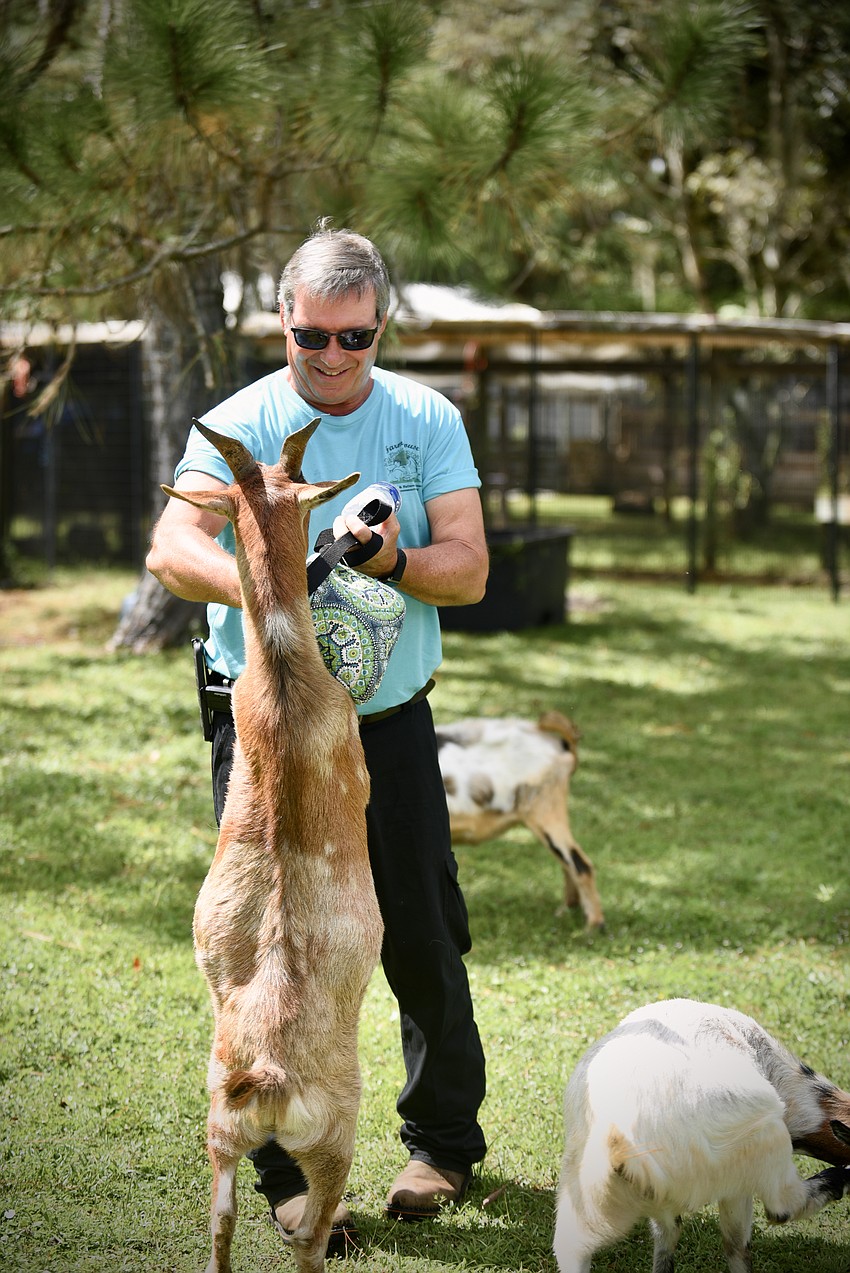
The couple got into volunteer work through an animal sanctuary in Parrish called Majical Miniatures. Partly because of those efforts, Dave got the itch to get a horse, but that wasn’t practical given that they lived in a subdivision off Cortez Road in Bradenton. Lisa balked at the idea of moving to the country, but she agreed to visit the property in Myakka City that would ultimately become Farmhouse Sanctuary. “We took a drive out on a Sunday and I fell in love,” she says. “It was so peaceful.”
In 2010, they signed a five-year lease and moved in. Danny, their horse, had plenty of room to romp. The Burns also fostered some animals at their property. When the owners of Majical Miniatures retired from running it full time, Dave and Lisa relocated to the Parrish facility as live-in animal caretakers.
In 2017, Lisa and Dave purchased the current site and started Farmhouse Sanctuary, taking in most of the animals from Majical Miniatures, which closed. The facility’s animal population has grown steadily, and most are here for life — although some, like bunnies, are eligible for adoption. Farmhouse Sanctuary is at capacity for some animals but has ample room for others. For instance, the quarter-acre kangaroo habitat, which currently houses four, can accommodate up to a dozen. They’ve had that many in the past.
To the onlooker, running this place looks so daunting. Lisa allows that there are days “when it’s so hectic that I feel in over my head, like it’s all just too much,” she says. “But this is what we do. We work through it. And there are lots and lots of good days.”